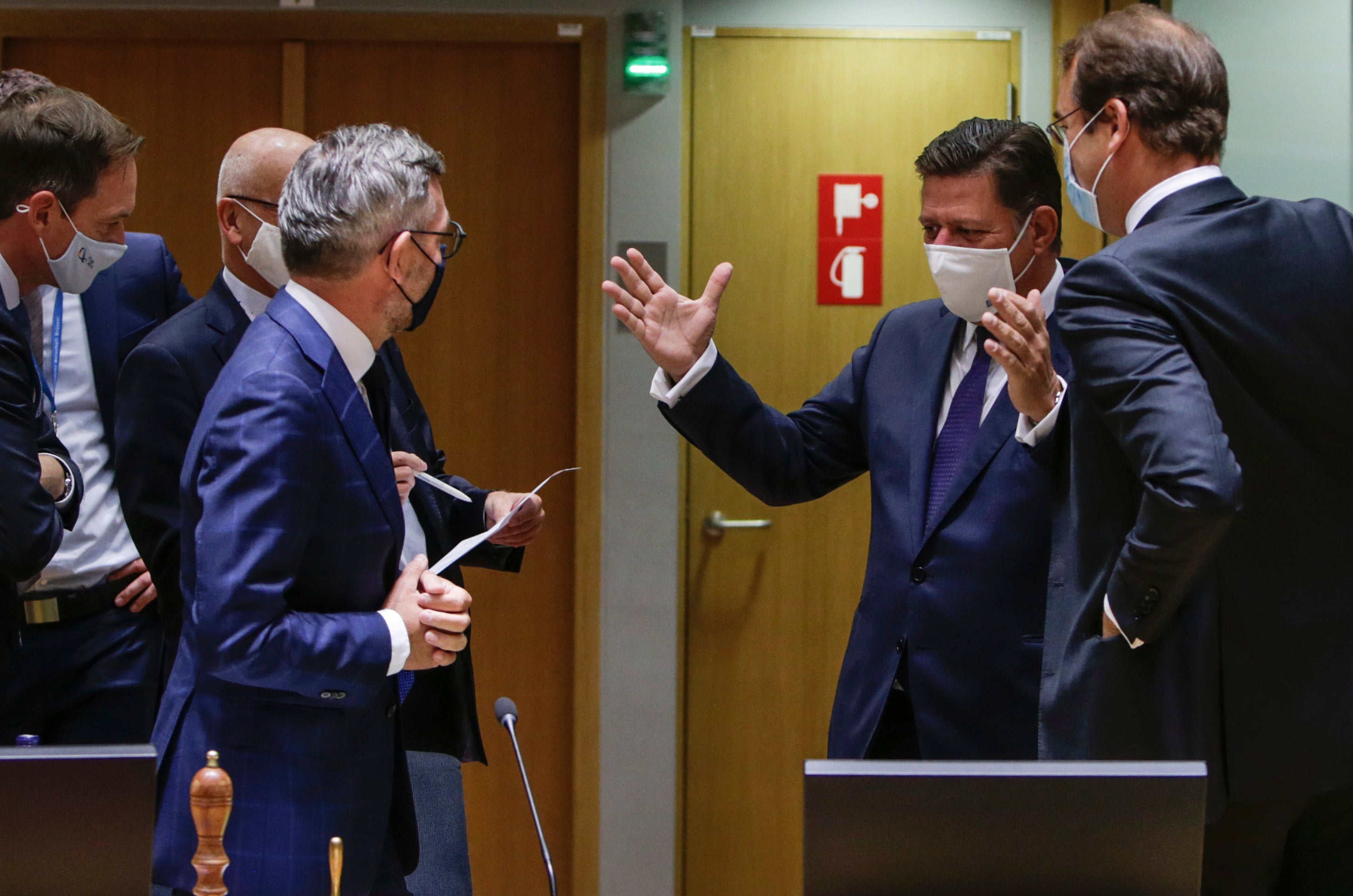EU envoys discuss borders, travel rules amid 2nd virus wave
European Union ministers are discussing ways to better coordinate travel restrictions in the 27-nation bloc and guarantee the smooth circulation of people and goods as many EU nations see a resurgence of coronavirus

Your support helps us to tell the story
From reproductive rights to climate change to Big Tech, The Independent is on the ground when the story is developing. Whether it's investigating the financials of Elon Musk's pro-Trump PAC or producing our latest documentary, 'The A Word', which shines a light on the American women fighting for reproductive rights, we know how important it is to parse out the facts from the messaging.
At such a critical moment in US history, we need reporters on the ground. Your donation allows us to keep sending journalists to speak to both sides of the story.
The Independent is trusted by Americans across the entire political spectrum. And unlike many other quality news outlets, we choose not to lock Americans out of our reporting and analysis with paywalls. We believe quality journalism should be available to everyone, paid for by those who can afford it.
Your support makes all the difference.EU European affairs ministers agreed Tuesday to better coordinate travel restrictions in the 27-nation bloc and keep their guarantee the smooth circulation of people and goods as many EU nations see a resurgence of coronavirus.
In March, several EU nations hastily closed their borders in an attempt to stop the spread of the virus, even though the EU's Schengen agreement allows residents to move freely between countries without visas. The action blocked traffic and medical equipment.
Tuesday's meeting, the first in-person gathering since February, did not produce immediate concrete results. But Michael Roth, the German minister for Europe representing Germany's rotating EU presidency, said all ministers committed to the principles of Schengen to avoid a repeat of the travel chaos.
“A virus has no passport, a virus does not care about national passport. It’s important that we coordinate better than we have done in the past,” he said after ministers discussed recommendations from the EU's executive commission and the German presidency.
“What is very important from the point of view of the commission is to return as soon as possible to a normal functioning of the single market, to remove all the barriers that have been created during the COVID crisis, and also give assurances to our citizens that we will very soon be getting things back to normal," sid Maros Sefcovic, a European Commission vice president attending the discussion.
Several EU countries dealing with a second wave of virus infections have imposing local lockdowns and restrictions on public and private gatherings. The European Commission has proposed that member countries agree on common criteria and thresholds for putting travel restrictions in place.
The commission suggested that EU governments take into account the total number of new confirmed cases per 100,000 people in a given area in a 14-day period, the percentage of positive tests during a seven-day period, and the number of tests carried out per 100,000 people over the same period.
It also proposed color-coded risk categories — green, orange, red and grey. Those arriving from an area classified as red or grey, for example, would be required to “either undergo quarantine or undergo a COVID-19 test after arrival – COVID-19 testing being the preferred option."
The German presidency has proposed harmonizing the data used to impose restrictions and that the European Centre for Disease Prevention and Control provide weekly reports on important indicators such as hospitalization and mortality rates.
Clement Beaune, the French state secretary for European affairs, said better coordination was “very important" to avoid creating “the confusion we are unfortunately experiencing."
Meanwhile, the European Commission said it increased its stockpile of protective medical equipment and supplies to support EU members if outbreaks in Europe worsen in the coming months. The EU was caught unprepared earlier this year when Italy ran out of masks and other countries could not immediately answer the country's request for assistance.
“With winter approaching and coronavirus cases increasing throughout Europe, it is crucial that we continue to build up our stocks," European Commissioner for Crisis Management Janez Lenarcic said.
___
Follow AP’s pandemic coverage at http://apnews.com/VirusOutbreak and https://apnews.com/UnderstandingtheOutbreak